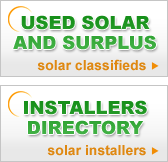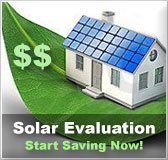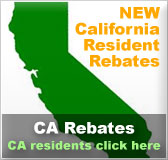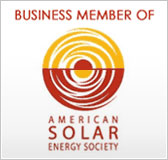
Renewable energy production tax credit:
-There are two separate production tax credit programs for energy
generated by eligible wind and renewable energy facilities in the
state of Iowa; Iowa Code 476C Tax Credit (wind and other renewable
energy facilities) and Iowa Code 476B Tax Credit (wind energy facilities
only).
-Eligible energy facilities include solar thermal electric, solar
photovoltaics, wind, biomass etc and may only qualify for one of these
two tax credits.
-Under the Iowa Code 476C Tax Credit the production tax credit available
for energy generated is 1.5 cents per kilowatt-hour and sold by renewable
energy facilities.
-Production tax credit may be applied for up to 10 years after facility
starts producing energy.
Property tax exemption:
-100% of the value added to a property by a renewable energy system
such as solar or wind, is exempt from Iowa State’s property
tax.
-This exemption can be used for five full assessment years.
-Eligible systems must be capable of using natural means to collect,
store and distribute solar or wind energy.
Wind and solar energy equipment exemption:
-This sales tax exemption is for the total cost of a renewable solar
or wind energy system including installation.
Alternate energy revolving loan program:
-This program provides loans for those who wish to build renewable
energy production facilities in Iowa.
-Funding is provided by Iowa state investor-owned utilities and administered
by the Iowa Energy Center.
-Eligible renewable energy technologies include solar, wind, biomass
and hydro. -The loan is divided into two parts. 50% of the loan is
provided by the alternate energy revolving loan program and is set
at 0% interest. The remainder of the loan is provided by a lender
at a varied rate.
-Qualified applicants will receive one loan and are given a maximum
20 year payback option.
Farmer’s Electric Cooperative – Renewable energy
rebates – Kalona:
-This rebate is offered by Farmer’s Electric Cooperative to
customers who install solar photovoltaic and wind systems.
-The rebate amount is $1,000 per peak kilowatt.
-Maximum rebate is $5,000 per site.
-Equipment must be new and installed for permanent use.
Independence Light and Power – Renewable energy rebates:
-Independence Light and Power provides rebates to customers within
their service territory who install renewable energy systems.
-Qualifying systems include; solar photovoltaics, solar thermal, wind
energy systems and solar water heating systems.
-Rebates vary upon the type of system installed.
Preston Municipal Electric Utility – Renewable energy
rebates:
-Preston Municipal Electric provides rebates to customers within
their service territory who install renewable energy systems.
-Qualifying systems include; solar photovoltaics, solar thermal, wind
energy systems and solar water heating systems.
-Rebates vary upon the type of system installed.
Residential renewable energy tax credit:
-This personal tax credit allows the taxpayer to claim a credit of
30% of expenditures including labor costs and installation of qualified
residential solar-electric systems, solar water heating systems or
fuel cells. Small wind-energy systems and geothermal heat pumps can
also be accredited for.
-Solar-electric systems and solar water heaters have a maximum incentive
of $2,000 if placed in service before 2009. There is no maximum incentive
for systems placed after 2008.
-The excess amount of the federal tax credit may be carried forward
to the next taxable year if it exceeds tax liability.
-This can be carried forward until 2016, but after that, it is unknown
if the unused credit will be able to be forwarded.
Residential energy conservation subsidy exclusion:
-This is a personal exemption of 100% of energy conservation subsidies
provided by public utilities.
-The value of a purchase or installation of any energy conservation
measure by a customer such as solar water heat, solar space heat or
photovoltaics will not be included in the customer’s gross income.
-Customers of an electric utility company, who participate in the
utility’s energy conservation program, may receive a rate reduction
of electricity furnished or a nonrefundable credit against the purchase
price of the electricity on each monthly electric bill.
Energy-efficient mortgages:
-This is a federal loan program where homeowners can use EEM (energy-efficient
mortgages) to finance renewable energy technologies in a home.









